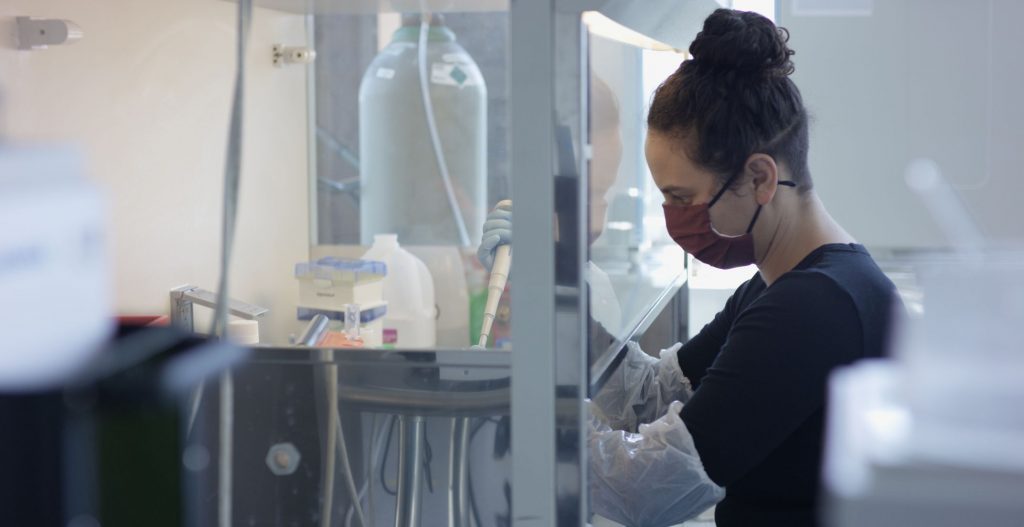
PIVOT CENTER AT THE UNIVERSITY OF UTAH. Employing a Relationship-Based Strategy to Manage Innovation
Last year the University of Utah (the U) made the progressive commitment to expand the role of its tech transfer office and create PIVOT Center. As the U’s integrated innovation and economic engagement office, PIVOT Center partners with inventors to bring their innovations to market.
The Evolution to Integrated Innovation Management
By fostering partnerships between industry, university and government entities, PIVOT Center catalyzes Utah’s innovation ecosystem, thus increasing the U’s impact on the Utah economy. PIVOT Center integrates technology commercialization, corporate engagement and economic development in a single, centralized organization, so the experiences and relationships we build are seamless, unique, long-term and successful. This is the opposite of the traditional linear, transactional tech transfer process. And while we track output-based measures like disclosures, patents, licenses, and startups, we aim to establish and build relationships as the foundation for managing innovation. In other words, on behalf of the University of Utah, our goal is to propel economic development through a process that combines art and science, relies on internal knowledge and external expertise, and results in trust and confidence.
Our Processes
We start with the research. Is it novel? Can it be protected using patents, copyrights, or trademarks? Is there value to be derived from know-how or trade secrets? Will someone use our tangible property for experimental or commercial purposes? To answer these questions, we manage a process that dives deep into the IP landscape, explores market potential across various industries and applications, estimates the time, financial, and human resources required to develop the technology, and targets entrepreneurs or companies. If the answer to any question is “no,” we present our analysis to the inventor and explore alternatives for getting to “yes.”

If, however, the invention can be protected and we think there is a high likelihood we can license the IP, we zero in on what is required to license or transfer the technology to a private entity. Occasionally, all it takes is a simple, uncomplicated license to generate revenue from a mouse model or patient-derived xenograft. More often, it requires another process that combines internal and external grants, directed research, and external expertise. PIVOT Center partners with inventors and entrepreneurs to devise and invest in milestone-based research to advance technology to a point where a startup or existing company will license it. We have also partnered with entrepreneurs and technical experts to provide new resources for promising technologies that require larger scale, intensive direction.
Focus on Efficiencies and Quality not Quantity
While creating several new processes, our focus is on efficiency. Every invention requires additional investment and work to develop a commercial product. For many universities, that creates an inherent conflict between offering the technology very early and trying to maximize the financial return. As an example, licenses to startups often impose ill-timed fees and aggressive milestones that repel investors and handcuff entrepreneurs. We instead pair market-based business terms with milestones developed by entrepreneurs, industry, and investors. We worry less about the number of licenses and startups we can report, and more about how quickly inventions become products and companies start generating revenue.
We try to adjust some of our strategies ̶ in order to balance process with efficiency and transition from transaction-based relationships to more partnerships. First, by thinking of the needs of our customers, those who are licensing our technologies. And second, by looking to maximizing patents and licenses that will maximize returns. While PIVOT Center has numerous stakeholders, from faculty and administrators to investors and government officials, if our product is technology, then our customer is whomever licenses that technology. Our stakeholders benefit from our activities, but our customers pay us for our products. Similarly, for startups and larger companies that license our technologies, patents and contracts enable their operations, but companies do not pay royalties based on the size of their patent portfolios or the number of legal signatures they generate. Companies generate customers and sales when they create competitive products with strong market demand.

To concentrate on creating better products (technologies), we must better understand our supply chain. PIVOT doesn’t invent. Faculty invent. Their ideas are our raw materials and raw materials require investment, time, and labor to become finished products. Turning the raw product of faculty invention into the finished product of a licensable technology requires universities to invest in product development. But the business of universities is to educate, not to invest in the product development necessary to commercialize technologies. The offices that license technologies are supposed to generate profit, not consume university finances. Which brings us back to where we started – innovation management and trusted partnerships.
Providing Integrated Programs to Nurture Innovation Management and Trusted Partnerships
PIVOT Center’s primary emphasis over the last three years has been to enhance our product development capabilities through collaboration with all our stakeholders and customers. Specifically, we have taken steps to nurture relationships and offer the elements needed by our stakeholders in their commercialization journey. Those steps include:
- Creating more transparency to help faculty understand the entire innovation management process and how it contributes to and supports their research goals.
- Dedicating internal financial resources to fund follow-on faculty research with in university labs.
- Expanding our ability to identify, engage, and cooperate with the customers who will license our technologies: entrepreneurs, startups, and existing companies.
- Partnering with private sector professionals to create new internal and external institutions to turn the raw material of invention into more licensable technologies.
Transparency and Collaboration with Faculty
Faculty’s biggest complaint when they disclose an invention is that their invention goes into a black box and they have no control over what happens next. PIVOT Center addresses those concerns by creating a comprehensive innovation management report for ever disclosed technology that we share with each inventor. This report outlines the IP landscape, potential product marketplace, and estimated financial requirements necessary to transition from a raw invention to a licensable technology. While reviewing the reports with inventors, we discuss their personal and professional goals, how the invention and continued work on it may or may not fit into their priorities, and what we can and will do to pursue a commercialization pathway.
The Ascender Grant Program
When faculty expresses an interest in continued research on the invention, we work with them to pursue additional governmental, corporate, and philanthropic research investment. PIVOT Center also manages a pool of retained earnings, the Ascender Grant Program, which we can provide to faculty to overcome final technical hurdles. Throughout this technology development period, we constantly engage with entrepreneurs and industry to keep up with market developments, generate interest in the licensing opportunity, and create a funding continuum.
PIVOT Center’s in-Residence Program
PIVOT Center created its multifaceted in-Residence program to leverage the knowledge, experience, and networks of successful entrepreneurs and industry leaders. The program includes Executive (XiR), Entrepreneur (EiR), and Mentor in-Residence (MiR) tracks, each with a different focus and goal. Executives in-Residence provide an independent voice to PIVOT Center and its many stakeholders for the evaluation and commercialization of University inventions. Entrepreneurs in-Residence are actively looking to launch or assume leadership in a startup. Roles span from founding and C-suite to board and consultative engagements. PIVOT Center created the Mentor in-Residence program as a hybrid offering for those who are not actively looking for their next gig, but want the flexibility to craft or pursue opportunities as they arise.
Accelerators and Incubators
In partnership with University of Utah colleges, departments, and administrative units, as well as private sector stakeholders, PIVOT Center has three technology accelerators and a wet-lab incubator to advance and support technology development, as well as startup formation and growth. Summit Venture Studio, which is dedicated to the commercialization of software applications developed in the university setting, provides capital and experienced talent to develop, launch and scale university software startups and bring products to market more efficiently and rapidly. The Orthopedic Innovation Center provides the ability not only to envision better surgical tools, instruments and devices, but also to create them rapidly, test them immediately, and iterate optimal solutions to solve real surgical needs and issues with unparalleled speed and accuracy. The University of Utah Therapeutics Accelerator Hub (U2TAH) provides resources and expertise to researchers to support the process of translating research discoveries into innovative clinical applications, while eliminating hurdles that often hinder the process of translating laboratory discoveries into new drugs for patients. Altitude Lab, a cutting-edge 14,500-square-foot facility equipped with nearly a million dollars of the latest molecular and cell biology tools, laboratory space and modern office and networking facilities, is a blended incubator/accelerator program focused on developing diverse and inclusive businesses in the healthcare sector.
In response to other’s success, people love to ask, what is your secret sauce? And just as many successful people love to respond with their epiphany. Love what you do! Embrace risk! Don’t wait! Fortunately for all of us, there really are no trade secrets when it comes to innovation management. PIVOT Center nurtures trusted relationships to build products that correspond to customer demand. An age-old adage, and something every entrepreneur and successful company knows how to do.
PIVOT (Partners for Innovation, Ventures, Outreach, and Technology) Center at the University of Utah
The Impact of Innovation
• Average Annual Disclosures – 200+
• Lifetime Startups – 300+
• Lifetime Licenses – 500+
• Utah Jobs Created – 37,000+
• Issued Patents – 1,300+
• Products to Market Since 2000 – 755
• In FY20 $203+ Million in Follow-on Capital Raised by PIVOT Start-ups
“Capital raised is a validation of the commercial promise of our companies.”— Keith Marmer, U of U’s chief innovation and economic engagement officer
• Notable Spinouts: Myriad, Recursion, BioFire
Paul J. Corson

Deputy Director and Sr. Director of Entrepreneurship, PIVOT (Partners for Innovation, Ventures, Outreach, and Technology) Center, University of Utah\r\nFor nearly three decades, Paul has led entrepreneurial initiatives in the United States, Europe, Latin America, the Middle East and Asia. His focus on entrepreneurship cuts across the public and private sectors, as well as NGOs and higher education. Paul has held leadership roles in three startup companies, developed and implemented public policy at the federal level for the Secretary of Commerce, NASA, and the White House, and spurred technology commercialization, access to capital, and business formation in higher education. At PIVOT, Paul has facilitated the launch of dozens of companies aided by three technology accelerators, a business incubator, and a highly successful in-Residence program. Previously, as the founding Chief of Staff, Paul oversaw efforts to launch and build the Office of Innovation & Entrepreneurship for the President of the University of California System. Paul was also the founding Executive Director of Innovation Fund America, a national family of pre-seed startup investment funds housed within community colleges that has invested over $13M in more than 200 companies. At the U.S. Department of Commerce (DOC), Paul served as Deputy and Acting Director and launched and managed the Office of Innovation and Entrepreneurship. Also while at DOC, he managed the National Advisory Council on Innovation and Entrepreneurship; helped design, launch, and manage a congressionally-authorized national grant program that has subsequently award over $100M for technology-based economic development; and co-managed and co-hosted President Obama’s Global Summit on Entrepreneurship.
 EN
EN